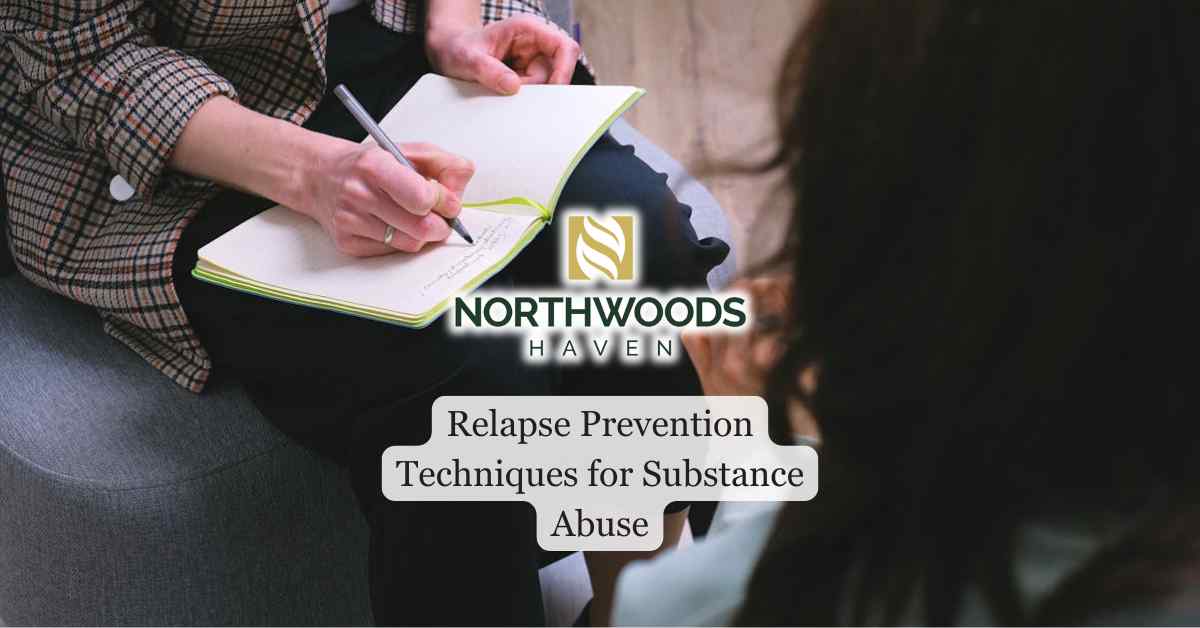Relapse prevention techniques play a crucial role in maintaining long-term recovery from substance abuse. These strategies help individuals identify and manage triggers, develop coping mechanisms, and build a support network to prevent a return to addictive behaviors.
This article focuses on the key elements of an effective relapse prevention plan. It provides valuable insights and practical tips that can strengthen recovery and lead to a fulfilling, substance-free life.
Identifying High-Risk Situations
When you’re aware of the environments and circumstances that may trigger a relapse, you’re better equipped to develop effective coping strategies.
High-risk situations often involve social settings where substance use is prevalent, such as parties or gatherings with people who are actively using drugs or alcohol. It’s important to recognize your personal limits in these situations and have a plan to exit or avoid them when necessary.
Emotional triggers, such as stress, boredom, loneliness, and relationship conflicts, can also increase the likelihood of encountering high-risk situations. By creating a list of your personal relapse triggers, you’ll be better prepared to manage them proactively.
If you’re struggling with substance abuse, Northwoods Haven Recovery will provide you with the proper support. Our team of addiction professionals will guide you through an Intensive Outpatient Treatment Program for addiction treatment in Minneapolis, MN.
Enhancing Emotional Regulation
Managing feelings of anxiety, depression, and stress can significantly reduce your likelihood of returning to substance use.
Practicing mindfulness techniques, like meditation and deep breathing, helps you become more aware of your emotional states and can promote healthier responses to cravings. Engaging in cognitive behavioral therapy enables you to challenge negative thought patterns and replace them with positive affirmations, enhancing your emotional resilience in recovery.
Regular physical activity improves mood and decreases stress levels, making it an effective relapse prevention strategy for enhancing emotional regulation. Developing a proactive mindset focused on recovery allows you to anticipate emotional challenges and implement healthy coping strategies before they escalate into potential relapse.
Seeking emotional support from friends, family, or support groups can provide a safe space to express your feelings and receive encouragement during difficult times.
If you’re worried about experiencing a potential relapse, then it’s important to learn about the Benefits of Choosing IOP for Substance Addiction Recovery and deciding if you should consider such treatment.
Fostering Supportive Relationships
Surrounding yourself with sober, positive individuals who understand your journey can significantly reduce the risk of relapse.
These connections provide a support system that you can rely on during challenging times, helping you manage cravings and triggers effectively. Regularly attending support groups fosters accountability and a sense of belonging, allowing you to share experiences and coping strategies with others who’ve faced similar struggles.
Consider engaging in family therapy to address underlying issues and promote a healthier dynamic within your support network. Participating in new social activities that don’t involve drugs or alcohol can help you build meaningful relationships while minimizing exposure to high-risk environments associated with past drug use.

Engaging in Self-Reflection
By engaging in regular self-reflection practices, such as journaling or mindfulness meditation, you can identify personal triggers and emotional responses that may lead to relapse.
This heightened awareness allows you to recognize patterns in your thoughts and behaviors related to substance use, empowering you to intervene early and seek support when needed.
Understanding the distinction between emotional, mental, and physical relapse stages through self-reflection enables you to develop and adjust coping skills that align with your current emotional and environmental contexts.
Establishing Routines and Goals
Creating a structured daily routine that prioritizes self-care activities like exercise, healthy meals, and adequate sleep, promotes overall well-being and stability, which significantly reduces your risk of relapse.
Incorporating coping strategies and mindfulness practices into your daily routine reinforces the skills you need to manage cravings and emotional triggers, enhancing your resilience against relapse.
Setting realistic short-term and long-term goals helps you maintain focus on your recovery journey, providing a sense of purpose and direction that’s crucial for preventing relapse. Regularly review and adjust your personal goals to ensure they remain relevant and achievable as circumstances change throughout your treatment and therapy.
Healthy Lifestyle Choices
Incorporating regular physical exercise into your daily routine can significantly reduce the risk of relapse by improving sleep quality, alleviating stress, and enhancing mood stability.
Additionally, maintaining a balanced diet rich in essential nutrients supports your overall well-being, which is crucial for sustaining recovery and minimizing withdrawal symptoms like fatigue and irritability.
Engaging in self-care activities and pursuing hobbies that bring you joy and fulfillment can mitigate feelings of boredom or loneliness, which are common triggers for relapse.
Creating a Personalized Relapse Prevention Plan
To create a personalized relapse prevention plan that’s tailored to your unique needs and experiences, begin by taking an honest inventory of your personal triggers.
These triggers for relapse can be internal, like stress, or external, such as specific environments or social situations associated with past substance use. Your plan should clearly outline coping strategies for managing cravings and stress, incorporating techniques like mindfulness, exercise, and deep breathing exercises to enhance emotional regulation.
Establishing a reliable support system is crucial, that’s why it’s recommended to list the individuals who can provide encouragement and accountability during challenging times.
Regularly review and adjust your prevention plan to ensure its effectiveness, adapting to new challenges and maintaining awareness of your limits in social settings.
Read more about What to Look for in an Intensive Outpatient Program for Addiction Treatment, if you’re interested in this form of recovery care.
Final Thoughts from Northwoods Haven Recovery
By incorporating these techniques into a comprehensive recovery plan, individuals can significantly increase their chances of maintaining long-term sobriety and preventing relapse.
It is important to remember that recovery is a journey, and setbacks may occur. However, with the right tools and support, it is possible to overcome challenges and continue on the path to a substance-free life. Northwoods Haven Recovery will provide you with top quality personalized treatment, which will help you navigate the trenches of overcoming addiction and building a new and better life.



